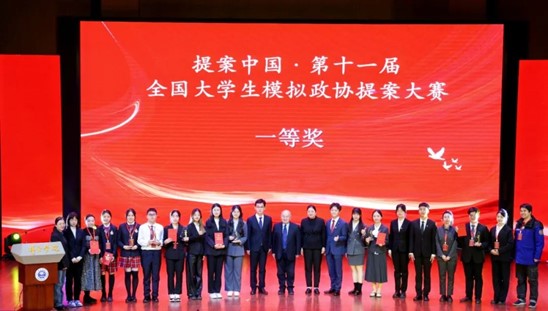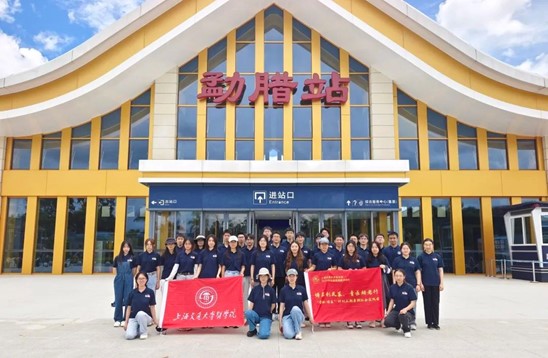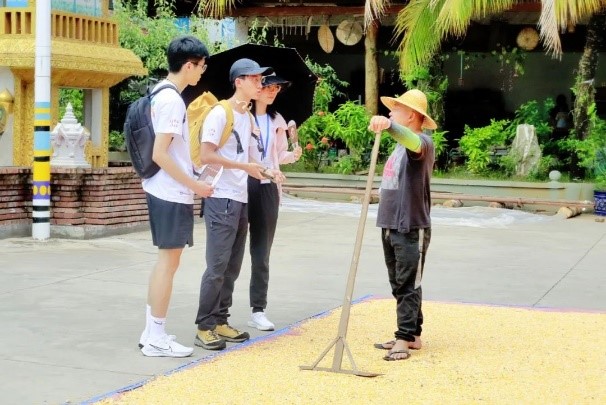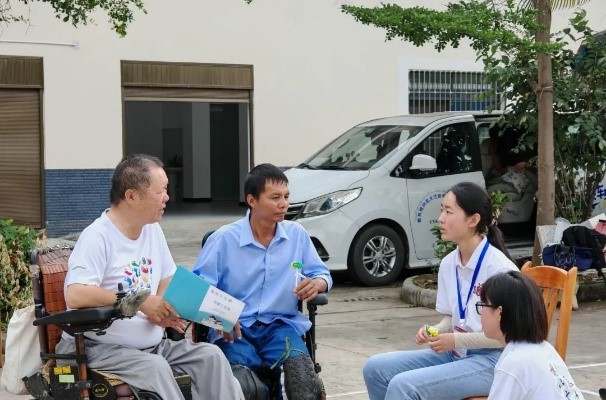
From December 5-7, the 11th National College Students' Model CPPCC Proposal Competition opened in Beijing. After multiple rounds of intense competition, SJTUSM students won the National First Prize and showcased their excellent proposal at the award ceremony.

Recently, the 11th National College Students' Model CPPCC Proposal Competition, titled "Proposals for China," kicked off at the Shahe campus of the Foreign Affairs University. This competition was jointly organized by the Foreign Affairs University, the Beijing CPPCC Theory and Practice Research Association, and the Communist Youth League Beijing Committee, with the Youth League Committee of the Foreign Affairs University and the Model CPPCC Association of the Foreign Affairs University as the hosts. It was supported by Beijing Academy of Educational Sciences and the Beijing Youth Innovation Academy. The competition received over 10,000 proposals from nearly 800 universities across the country, covering fields such as education, economy, technology, culture, healthcare, and society. Among them, 60 proposals from the university group were selected for the national competition semifinals. After simulated consultations, proposal presentations, and defense, 18 proposals entered the finals, from which three first-place winners were chosen. The proposal from Shanghai Jiao Tong University School of Medicine, titled "Proposal for Promoting the 'Digital Chronic Disease Medical Alliance' in Western China," won the National First Prize and was presented as an excellent proposal at the award ceremony.



Proposal Title:
"Proposal for Promoting the 'Digital Chronic Disease Medical Alliance' in Western China"
Team Members:
Zhang Han, Xing Sijia, Zhu Miao, Guo Yonglin, Shi Xincheng, Zheng Shigong, Nie Zijie, Huang Ying
Advisors:
Liu Jialin, Xie Xin, Cheng Yaqing
Summary:
In recent years, chronic diseases such as cardiovascular and cerebrovascular diseases and cancer have become major threats to the health of Chinese citizens and have had a significant impact on economic and social development. China has placed high importance on chronic disease prevention and control, issuing policies such as the "Healthy China 2030" Planning Outline.
In response to national policy guidance and in line with the health needs of the people, the research team, relying on the "Rongchang-Boyi" excellent medical talent training program Phase III, conducted field visits to several provinces and cities in Western China. They identified four key issues in the current chronic disease management system in the region: an uneven distribution of disease resources, weak information connectivity, disjointed diagnosis and treatment processes, and underdeveloped supporting industries.
Through site visits, expert discussions, and surveys, and by combining the experience of the eastern region with the geographical characteristics of the western region, the team proposed the introduction of the "Digital Chronic Disease Medical Alliance" model in Western China. The plan aims to promote integrated digital platforms within medical alliances, strengthen the full-process digital management of chronic diseases, and connect the entire industrial chain of the medical alliance to improve services and management for chronic disease patients.
This competition not only served as a valuable exercise in political participation for medical students but also strongly promoted the concept of nationwide health. In the new era, as the future backbone of the healthcare industry, SJTUSM students will uphold the school’s spirit of "Inclusiveness, Truth-Seeking, Innovation, and Dedication." They will deeply understand the responsibility they bear in this era, cultivate practical abilities and a spirit of hard work, and continuously pursue excellence in medical research and practice. Through their efforts, they aim to contribute to the advancement of medical science and the development of global health, striving to better serve the country and its people.




